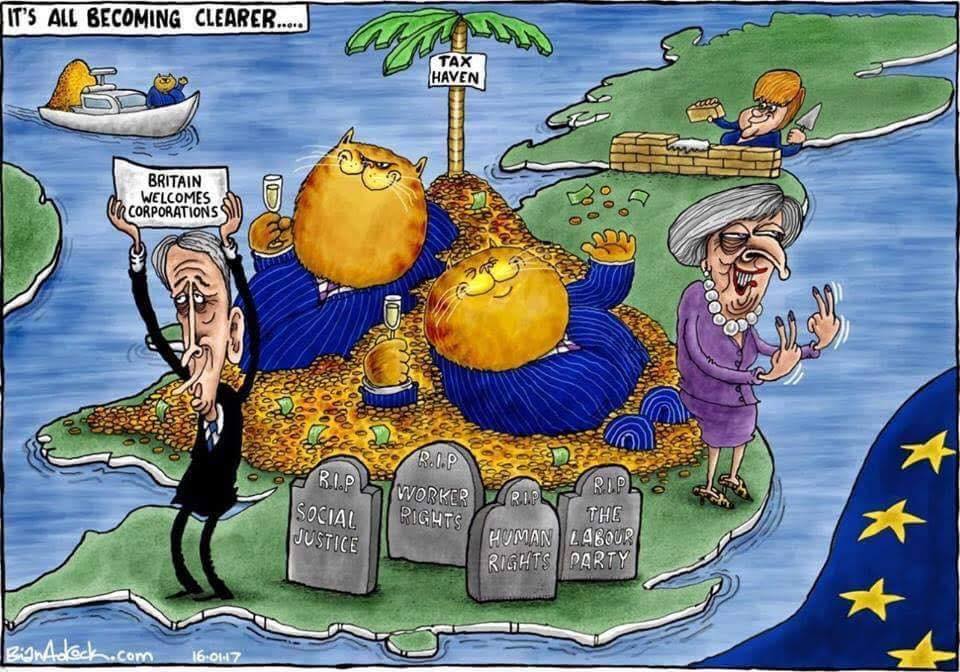
By Nick Dearden, Director of Global Justice Now
The actions and inactions of this British parliament will be long remembered. Under the guise of ‘taking back control’ from the EU, the majority of MPs insisted that they did not want a meaningful vote on whether to accept the final terms of an exit deal.
The House of Lords were so concerned with this dereliction of duty on the part of elected representatives that they inserted an amendment to give MPs a chance to reconsider. ‘No’ said MPs last night, in even greater numbers, ‘we forego our responsibility for the greatest constitutional change in 40 years’.
The irony wasn’t lost on Green MEP Molly Scott Cato who tweeted:
If Commons does not accept Lords amendments on scrutiny and final vote I will have more power over #Brexit process than MPs #TakeBackControl
— Green💚🌻🍉Molly (@GreenPartyMolly) March 13, 2017
So will all MEPs, from whom Westminster is supposedly reclaiming authority.
Neither did MPs feel any duty towards three million non-British EU residents who have made the UK their home. The Commons voted down a very moderate amendment which attempted to guarantee the rights of those residents. People who have brought their skills, knowledge and experience to our country were treated as bargaining chips in the Brexit negotiating process.
Having voted away their rights to constrain the British government in any way at all in these negotiations, MPs then voted through the Article 50 Bill which the government needs to trigger exit talks with the EU. Not with a bang, but a whimper, MPs surrendered power to the executive.
No matter how people voted in the EU referendum, this should be the loudest of wake-up calls. What we are facing has been starkly demonstrated: a Brexit without dignity, respect or accountability.
Despair is understandable, but it is not a luxury we can afford. We can still do much to limit the damage of this dangerous Brexit.
The Great Repeal Bill is our next battle. This is the piece of legislation through which the government will attempt to transpose EU legislation into British law, from where we can decide what we want and what we don’t. Sounds good. But the task is far from simple and many pieces of law will simply be left to whither on the vine or be handed to ministers to amend or repeal under so-called ‘Henry VIII’ powers. As the name implies, these powers challenge our whole political structure.
These measures contained in EU law are very wide-ranging, affecting social and environmental protections across the board. We cannot allow the government the power to change these regulations outside of parliament.
Second, the government wants a set of trade deals ready to sign post-Brexit. Secretive working groups have been established which MPs have no access to. What’s more, under current rules, MPs will have no ability to set guidelines for these trade deals, to properly scrutinise, amend or permanently veto them.
Today trade deals cover pretty much every aspect of life – from the food we eat to our public services to the way laws are written. The government is already preparing to work on deals with the Trump administration, with the increasingly authoritarian government of Turkey and with Gulf states. We must force open this process and not allow the government to turn Britain into the low-tax, low-regulation centre of Europe.
Third, we must push back on the way migrants are being demonised – wherever they come from. We’re starting by challenging companies to stop advertising in tabloids like the Daily Mail, which foster this anti-migrant attitude. But we also need to be ready to fight for as open a migration system as possible for all people. Tougher migration controls are cause and consequence of racism, and we will never create a better word by discriminating on the basis of where people come from. Rights, respect and dignity must be the basis of our migration system.
This is a start but it’s not enough. Britain is now in the grips of a full-blown political crisis. Of course this crisis did not begin on 23 June 2016. It is a crisis born of economic inequality, of the marginalisation of parts of our society, of the marketisation of every aspect of our lives. It is a crisis that is beginning to consume the western world, but it is not a surprise that its first victims are Britain and the US, those countries that most fully embraced the so-called free market model in which profit matters more than people or the planet.
Beating this wave of xenophobia and economic nationalism means not merely addressing the symptoms but combatting the illness itself. While government ministers like Liam Fox and Boris Johnson see Brexit as the opportunity for even more ‘market’, we must work for a society based on equality, on rights, on dignity. We cannot simply return to the world before the financial crisis, with an economy cracked by inequality, poverty and ‘profit before anything’. it is precisely through these cracks that the poison of racism and xenophobia have seeped, to infect our whole body politic.
We need something very different. It is our responsibility to build a different economy and society – based on the needs, rights and dignity of all people. The construction of such an economy is the only way to beat the hatred. It will not be easy. These are very dangerous and dark times. But we don’t have a choice. If not us, then who? If not now, then when?
15th March 2017
